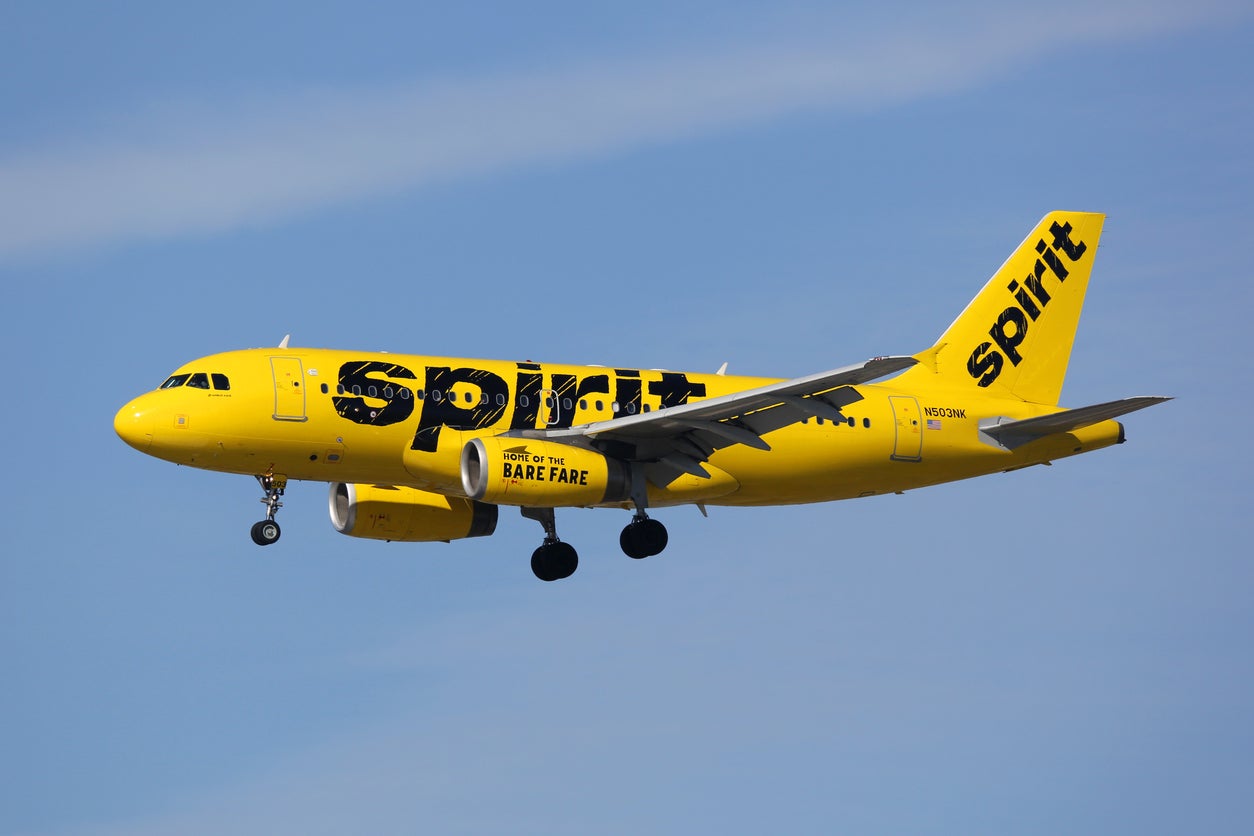The Independent's journalism is supported by our readers. When you purchase through links on our site, we may earn commission.
Woman dies of Covid-19 on Spirit Airlines flight – but no other passengers are told
Case exposes weak spots in US system

Your support helps us to tell the story
From reproductive rights to climate change to Big Tech, The Independent is on the ground when the story is developing. Whether it's investigating the financials of Elon Musk's pro-Trump PAC or producing our latest documentary, 'The A Word', which shines a light on the American women fighting for reproductive rights, we know how important it is to parse out the facts from the messaging.
At such a critical moment in US history, we need reporters on the ground. Your donation allows us to keep sending journalists to speak to both sides of the story.
The Independent is trusted by Americans across the entire political spectrum. And unlike many other quality news outlets, we choose not to lock Americans out of our reporting and analysis with paywalls. We believe quality journalism should be available to everyone, paid for by those who can afford it.
Your support makes all the difference.A woman died from Covid-19 on a Spirit Airlines flight in July, but none of the other passengers onboard were ever informed about the cause of death.
The 38-year-old woman, who has asthma, was travelling from Las Vegas to Dallas on flight 208 on 24 July when she started to have difficulty breathing.
She used her inhaler and was given oxygen, to no avail.
A flight attendant attempted CPR after the woman had lost consciousness, and passed out herself from the exertion.
The plane was diverted to Albuquerque, New Mexico, where medics attempted to revive the woman on the boarding bridge, but she was pronounced dead at the airport.
Despite the fact that investigators learned within two days that the woman had tested positive for coronavirus, this information was not fed back to any other passengers, including those who had been sitting near her on the aircraft.
Local police and fire departments were informed, but the health department, having received the positive Covid result directly from the lab rather than the Office of the Medical Investigator, did not investigate further or discover that the woman had been on a flight when she died, reports the Washington Post.
This meant it failed to launch a tracing process with the Centers for Disease Control and Prevention (CDC).
Spirit Airlines claims to have alerted the CDC as soon as it became aware of the coronavirus diagnosis, but alleges that a passenger manifest was ever requested for contact tracing purposes.
Meanwhile, the CDC says it has no record of being contacted by Spirit.
The story highlights the gaps in the US process when it comes to passengers on flights testing positive for Covid-19, with the responsibilities for contact tracing shared between airlines and local, state and federal officials.
A spokesperson for the Association of Flight Attendants said: “The lack of a federal Covid-19 plan for aviation has been a problem throughout the pandemic.
“As a result of this inaction, there is a patchwork of policies and procedures that inevitably leaves gaps.”
The Independent has contacted Spirit Airlines and the CDC for further comment.
It follows the news that US airline have refused to collect and store passenger data that would aid in tracing and contacting those who may have contracted coronavirus on flights.
The Centre for Disease Control and Prevention (CDC) has been warning since 2005 that a lack of passenger information hampers its ability to track cases of illness and contact those who may have also become infected, reports The New York Times.
At present, it only has access to data on around half of all travellers per flight, as anyone who has booked through a third-party website such as an online travel agent does not have personal information available on the flight manifest.
This means that, during an outbreak, it’s tough for the CDC to get in touch with every passenger who may have come into contact with a disease carrier.
The CDC said it needed just five bits of information on each traveller: name, phone number, email address, address where they’d be staying in the United States and emergency contact information.
However, airlines have continued to lobby strongly against collecting more passenger data when people check-in for flights, arguing that they would need to overhaul entire computer systems – a task they claim would cost hundreds of millions of dollars and at least a year to undertake.

Join our commenting forum
Join thought-provoking conversations, follow other Independent readers and see their replies
Comments